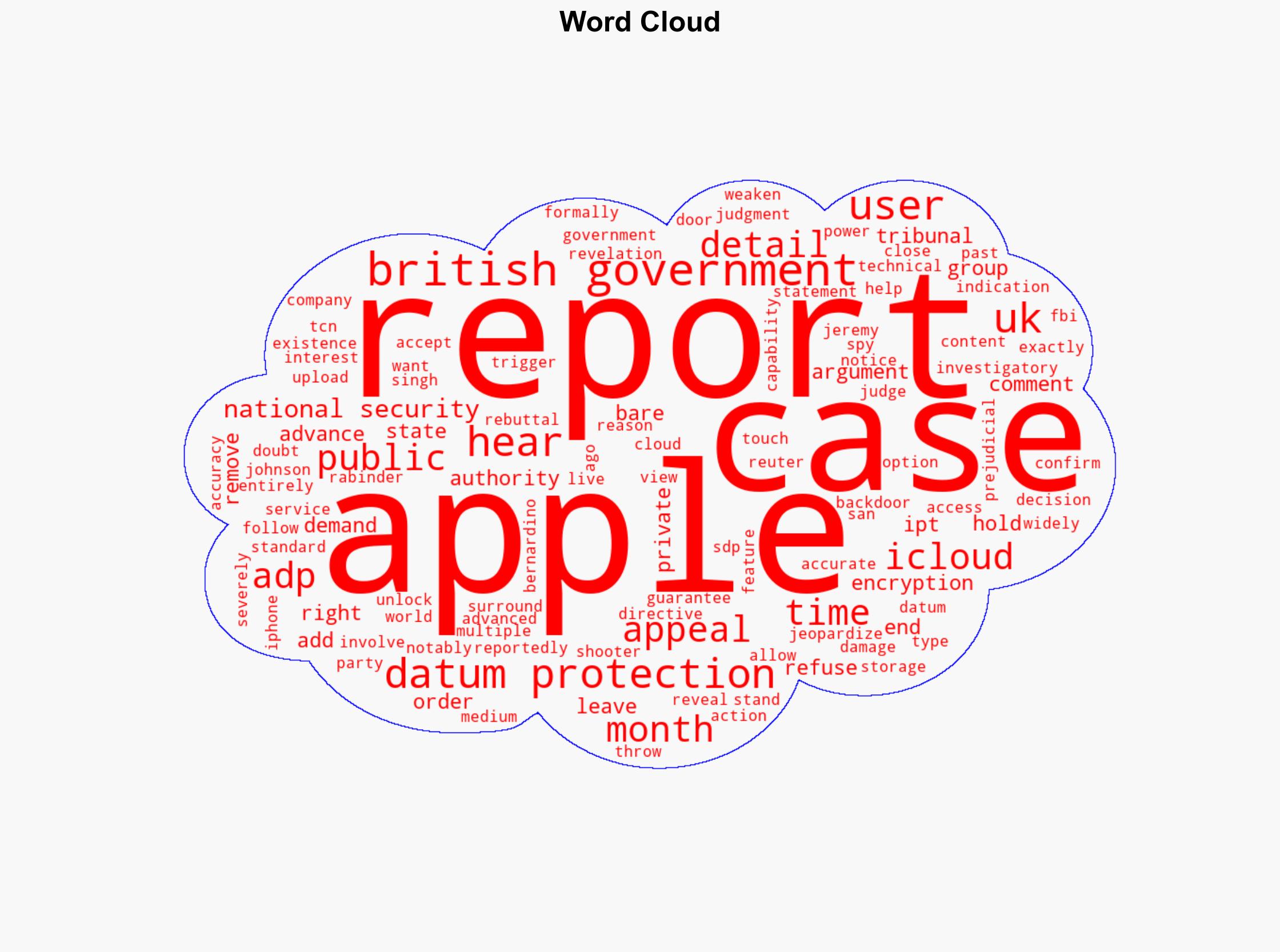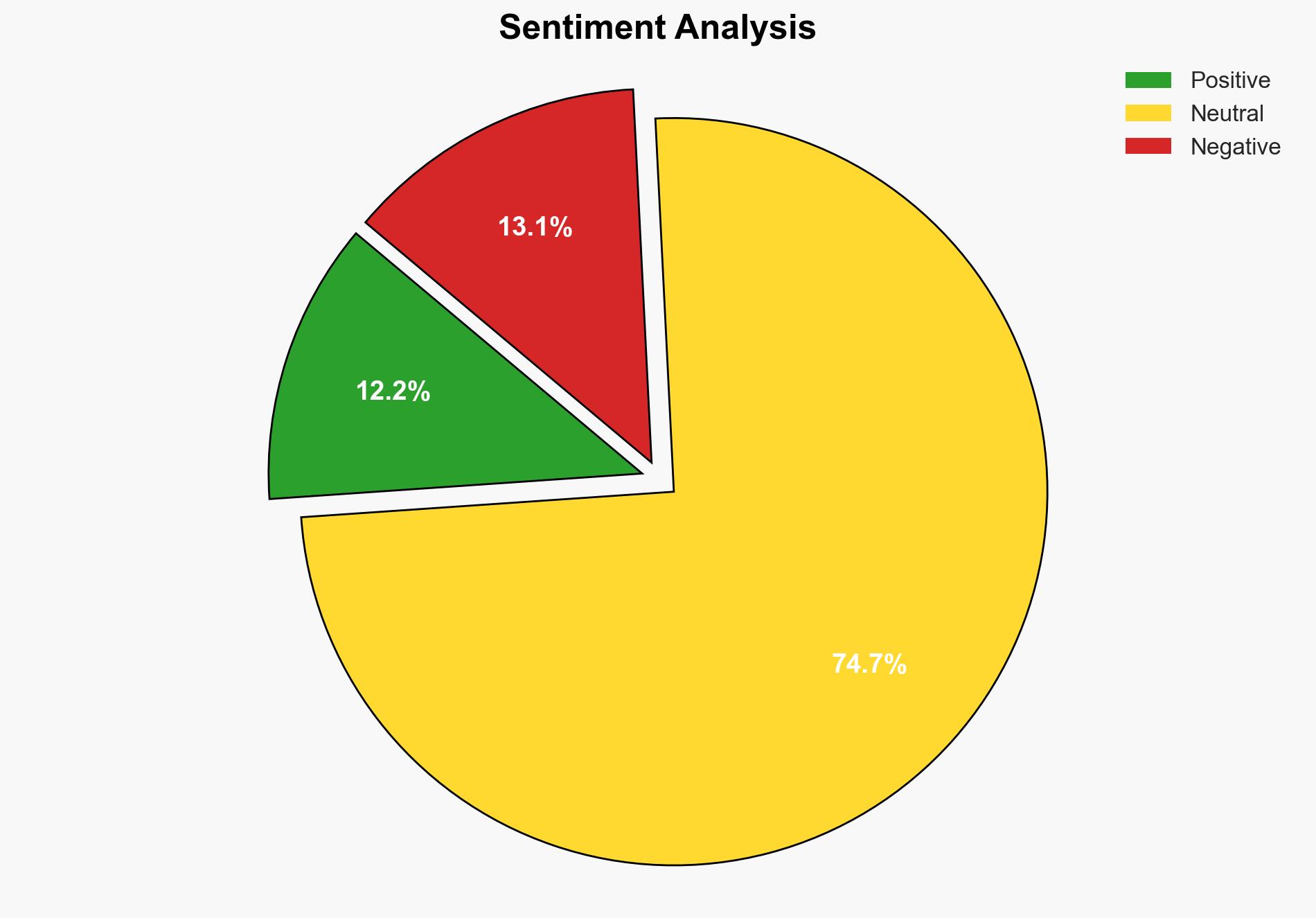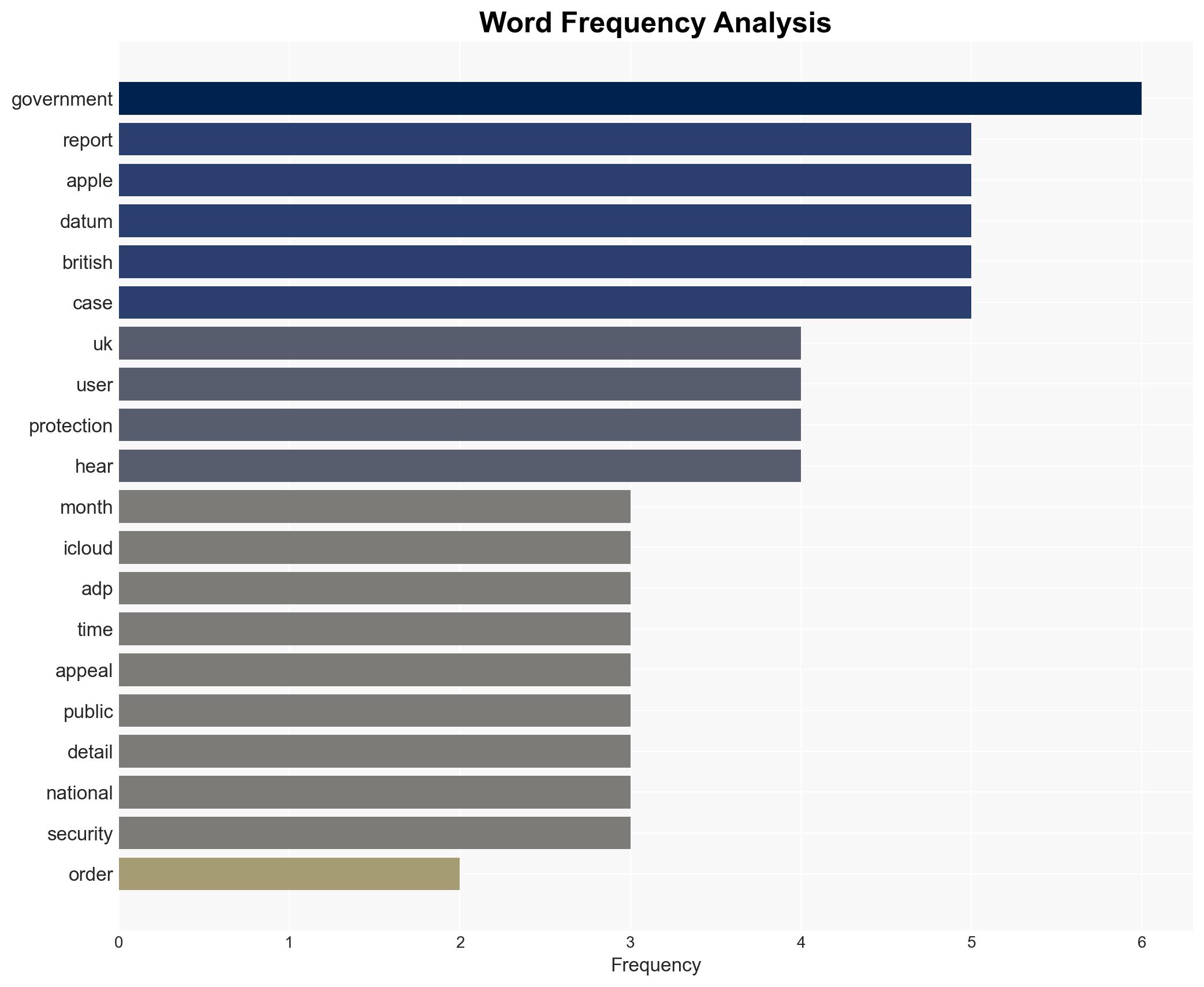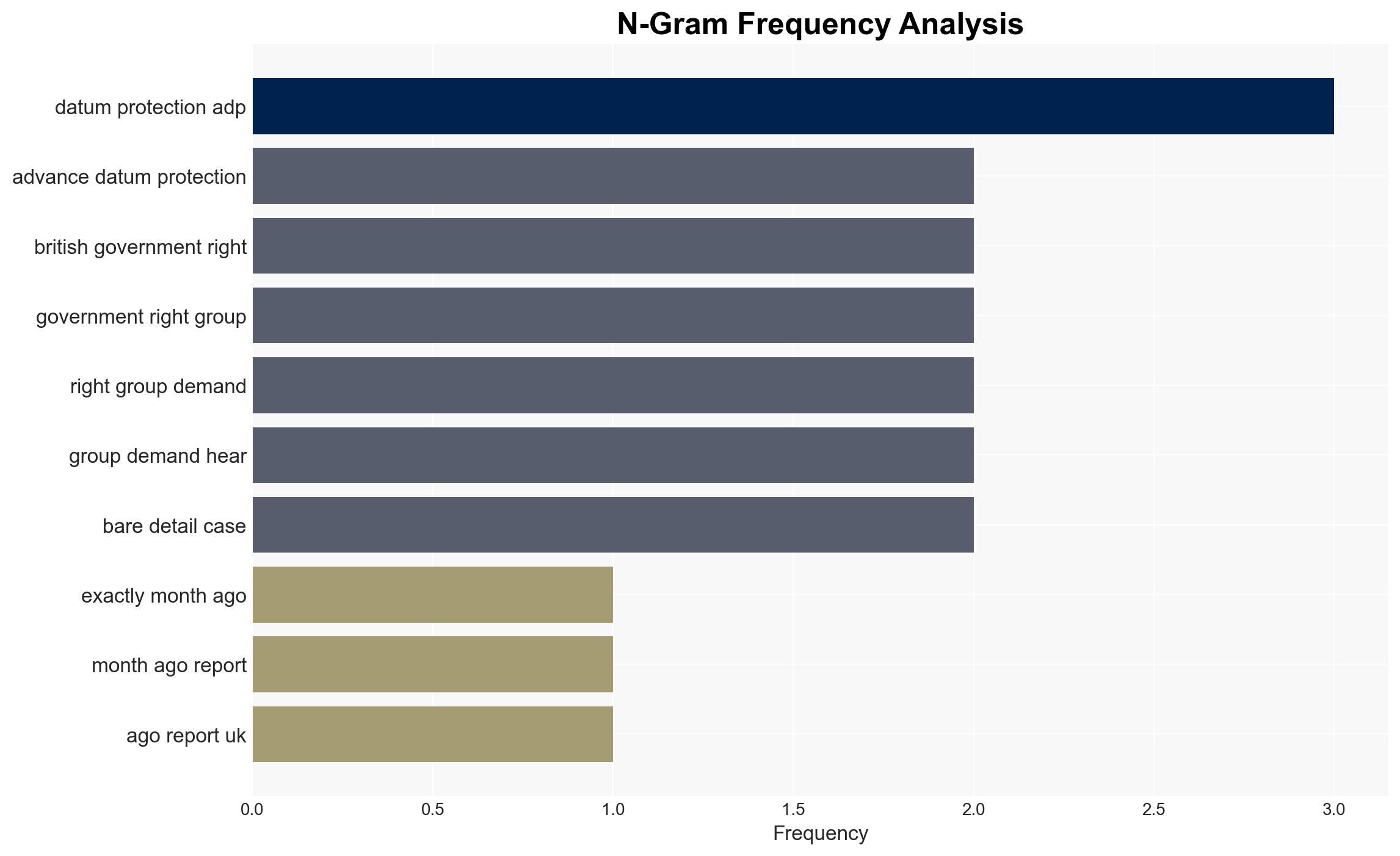UK can’t keep its encryption fight with Apple private court rules – Neowin
Published on: 2025-04-07
Intelligence Report: UK can’t keep its encryption fight with Apple private court rules – Neowin
1. BLUF (Bottom Line Up Front)
The UK government’s attempt to mandate a backdoor in Apple’s iCloud service for users in the UK has been challenged in court. The court ruled against keeping the proceedings private, emphasizing transparency. This decision could impact the balance between national security and privacy rights, with potential global implications for technology companies and their encryption policies.
2. Detailed Analysis
The following structured analytic techniques have been applied for this analysis:
General Analysis
The UK government sought to enforce a technical capability notice (TCN) requiring Apple to disable its Advanced Data Protection (ADP) for iCloud users in the UK. This would effectively weaken encryption, allowing government access to user data. Apple has historically resisted such measures, citing privacy concerns and the potential for abuse. The Investigatory Powers Tribunal (IPT) ruled that the case details must be public, rejecting the government’s national security argument. This ruling aligns with Apple’s stance on maintaining robust encryption and could set a precedent for similar cases globally.
3. Implications and Strategic Risks
The ruling poses several strategic risks and implications:
- **National Security:** The decision to make the case public may limit the government’s ability to enforce similar measures in the future, potentially impacting national security operations.
- **Privacy and Civil Liberties:** The ruling supports the protection of user privacy, reinforcing the importance of encryption in safeguarding personal data.
- **Economic Interests:** Technology companies may face increased regulatory scrutiny, affecting their operations and market strategies in the UK and beyond.
4. Recommendations and Outlook
Recommendations:
- Engage in dialogue with technology companies to find a balanced approach that addresses both security and privacy concerns.
- Consider legislative updates to clarify the scope and limitations of technical capability notices.
- Invest in alternative security measures that do not compromise encryption standards.
Outlook:
Best-case scenario: A cooperative framework is established between the government and technology companies, enhancing both security and privacy.
Worst-case scenario: Continued legal battles and public backlash lead to strained relations and potential economic repercussions.
Most likely outcome: Incremental policy adjustments and ongoing negotiations shape future encryption and privacy standards.
5. Key Individuals and Entities
The report mentions significant individuals and organizations including Rabinder Singh and Jeremy Johnson, as well as Apple and the UK government. These entities are central to the ongoing legal and policy discussions surrounding encryption and privacy.





